Monthly Archives: August 2018
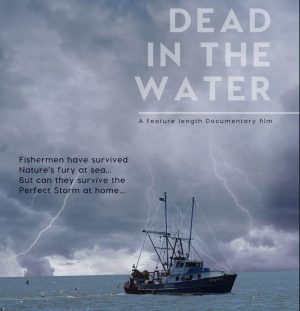
New Hampshire: Watch Dead In The Water, showing in Portsmouth tomorrow night
DITW film in New Hampshire this Tuesday evening at 7:00 pm at the 3SArtspace in Portsmouth, NH. Admission is $15 there will be a Q&A afterwards with the few New Hampshire fishermen that are left. 14:21
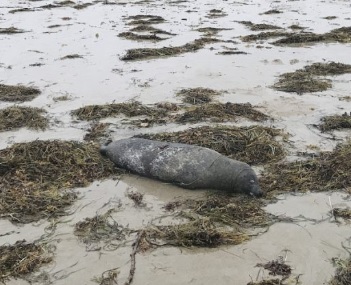
Decades of chemical pollution suspected in Maine’s seal die-off
As the number of dead and stranded seals washing up on southern Maine beaches rises by the day, researchers are linking the sudden die-off to decades of chemical pollution that made the seal population vulnerable to toxins and disease.,,, In the past week, volunteers responded to 100 dead seals on Maine beaches south of Portland and in Casco Bay, said Lynda Doughty, the group’s executive director. The phone has been ringing off the hook, and on Friday afternoon volunteers were clearing a backlog of animal reports. Rescuers reported 179 dead seals in Maine since the beginning of July and another 51 dead in New Hampshire, according to the agency>click to read<13:44
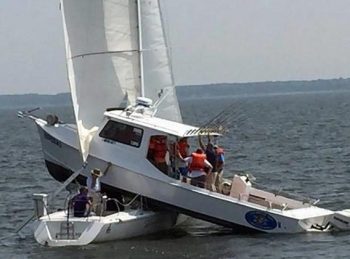
You Don’t See This Everyday
It was a stunning visual – a powerboat sitting on top a J/105 while out on the Chesapeake Bay. This was the result of a violent collision in which, thankfully, no one was hurt. It was August 17 when the two boats were off the shore of Thomas Point Park when the commercial boat, part of a charter service, and a J/105 sailboat belonging to the Chesapeake Boating Club in Eastport, collided. There were nine people aboard the boats – 2 on the J/105 and 7 on the powerboat. The boats were perpendicularly stacked until emergency personnel arrived in the early afternoon and separated them and towed both to shore. Photos >click to read<12:17
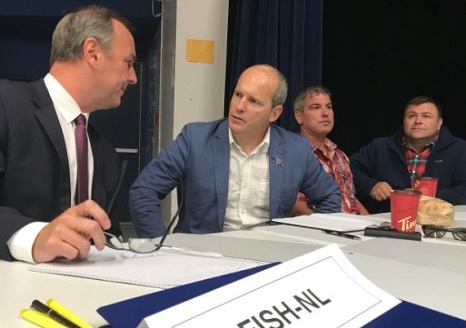
Today: FISH-NL appears before labour board as it attempts to be a certified union
The Federation of Independent Seafood Harvesters (FISH-NL) is appearing before the provincial labour relations board Monday, in a hearing to determine who should qualify as an inshore harvester. It’s part of FISH-NL’s push to become a certified union for inshore fishers in Newfoundland and Labrador. FISH-NL’s hearing will be part of determining exactly who is considered an inshore harvester, as FISH-NL and the Fish, Food and Allied Workers Union (FFAW) are in a dispute about who qualifies. >click to read<10:09
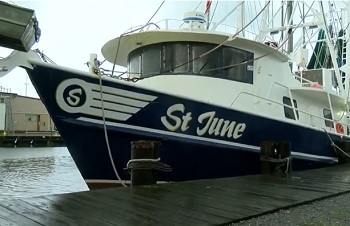
Shrimpin ain’t easy, but shrimpers finding ways to navigate 30 yr low prices
Shrimpers across the state have been complaining about foreign imports that are driving prices to a thirty year low. Shrimpers with larger boats say they’re aiming for higher quantities to unload at processing plants on the Gulf Coast, while shrimpers with smaller boats are trying to build networks in communities by selling directly to the public. “With a bigger boat you can chase bigger shrimp to get more money for them. There’s nothing but little shrimp closer to land, the beach where the small boats gotta stay. I mean it’s all they can do really,” said Marty LeBlanc. >click to read<09:26
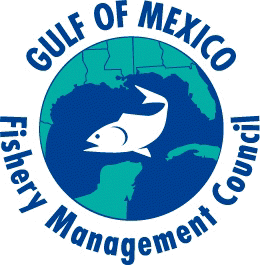
Gulf of Mexico Fishery Management Council meeting in Corpus Christi, TX. August 20-23, 2018
The Gulf of Mexico Fishery Management Council will meet August 20-23, 2018 at the Omni Corpus Christi hotel located at 900 N. Shoreline Boulevard, Corpus Christi, TX 78401. Public testimony is scheduled on Wednesday, August 22, from 1:30 PM to 5:00 PM. The Committee and Council Agendas are available on the Council website at www.gulfcouncil.org. Meeting materials will be posted as they become available. Council meetings are open to the public and are broadcast live over the internet. Register for the webinar >click here< 19:49
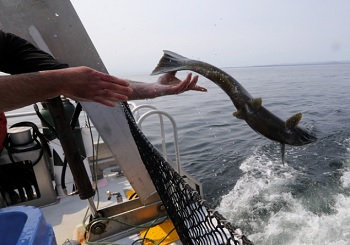
Dosed salmon, clipped fins, a ‘dinner bell’: How far is too far in helping starving orca?
The emergency effort to save a critically ill orca whale is an experiment without precedent. An international team of scientists is piloting techniques to treat a wild, free-swimming orca, one of the largest predators on Earth. The effort includes serving up live fish pumped with medicine and playing a unique tone that one researcher likened to a “dinner bell.” A federal permit approved Aug. 8 provides the clearest look yet at the details of an operation that raises questions even for those involved about the proper limits of human intervention. >click to read<17:39
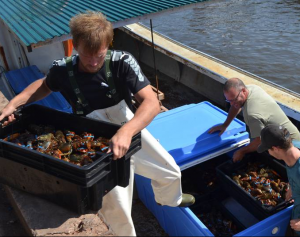
Lobster carapace size increase remains a concern at some P.E.I. ports
Miminegash lobster fishermen are claiming to be negatively impacted by the two-millimetre carapace increase imposed this year. One fisherman, loading up with bait for the next day’s fishing, said Wednesday he is throwing back a lot of lobsters that are just under the minimum length. Shane Costain, captain of the Miminegash Maiden, said his catch took a big dip on Tuesday. He said a lot of lobsters he is throwing back would have been legal size if not for this year’s increase. “The measure is hitting us hard,” he insisted. >click to read<14:49

Drug overdoses hit new high in 2017 — CDC
The Centers for Disease Control and Prevention estimates a record number of people died from drug overdoses in 2017. The death toll is higher than the peak yearly death totals from HIV, vehicle crashes or gun deaths. Experts point to two contributing factors: More Americans are using opioids, and drugs are becoming more deadly. Parts of Appalachia and New England showed the highest mortality rates. Massachusetts, Rhode Island and Vermont all saw declines. Trump has also set up a presidential council to address the problem. “A majority of abused prescription drugs were obtained from family and friends, often from the home medicine cabinet”, Ebied said. “Because of the forces of stigma, the population is reluctant to seek care”. There were 10,684 overdose deaths from these drugs in 2016. Ciccarone said the real number could be as high as 4 million. >click to read<11:02
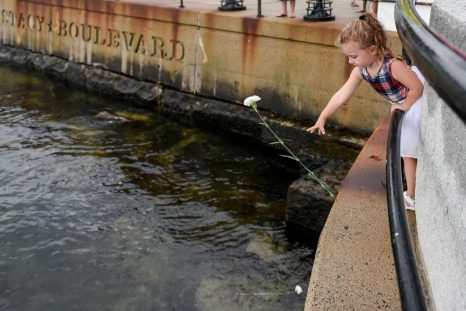
Fishermen’s Memorial Service ‘shows the story behind the memorial’
Around 70 people who attended the annual Fishermen’s Memorial Service were held rapt by the words of local author and filmmaker Ron Gilson as he shared the stories of friends he has lost, fishermen who were taken by the sea. Gilson was the keynote speaker at the service Saturday, which was held on the second floor of the Capt. Lester S. Wass American Legion Post 3 hall because of inclement weather. Painted oars that would have been carried to the Man at the Wheel statue and its accompanying cenotaphs at Stacy Boulevard had it not rained were propped up against either side of tall windows in the hall. Keynote speaker Ron Gilson emphasized at the service that Gloucester was built upon the fishing industry. “Four 400 years, we have been fishermen,” he said. “Fishing is what we do here. Make no mistake: Fishing is who we are.” >click to read<10:01
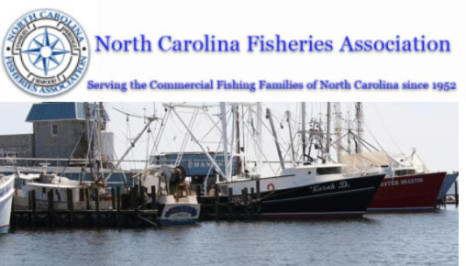
North Carolina Fisheries Association Weekly Update for August 17, 2018
>Click here to read the Weekly Update<, to read all the updates >click here<, for older updates listed as NCFA >click here<08:20
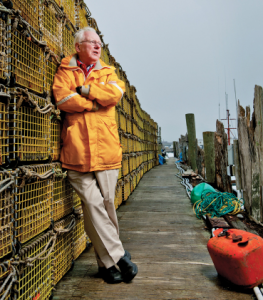
Lobster Industry Innovator Passes Away
Riverdale Mills Corporation announces with great sadness the passing of company founder, owner, and retired CEO James Knott, Sr. Mr. Knott was 88. Great innovators make their mark by challenging the status quo and finding new ways to do things better. James Knott, Sr. unequivocally fit this category as a profoundly influential innovator, whose products help millions of people. From spending summers in Gloucester, MA, Knott saw firsthand how much time and money lobster fishermen spent fixing their wooden traps. He was convinced there had to be a better way. Knott set out to build a more durable lobster trap to keep fishermen on the water making a living, instead of regularly onshore repairing their traps or building new ones. >click to read<17:56
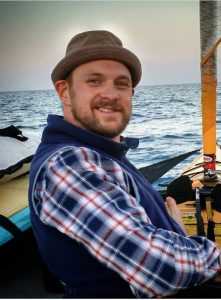
Quick action by Rockport fisherman saves lobstermans life
A Rockland lobsterman said he thought he was going to die as he struggled Thursday to stay above water in Rockland Harbor. But the quick response by a crew member of a fishing vessel docked at the Rockland Fish Pier prevented a tragedy. Gary Kenney had come in from hauling traps and was bringing his lobster boat to its mooring about 200 to 300 hundred yards from the fish pier. He said he was at the bow when another boat came speeding by at a fast rate, despite it being a no-wake zone. The wave created by the speeding boat, which he was not expecting, caused him to lose his balance and fall into the water.,, At the same time, Andrew Banow was atop a truck on the fish pier unloading fish from the Western Sea. >click to read<16:27
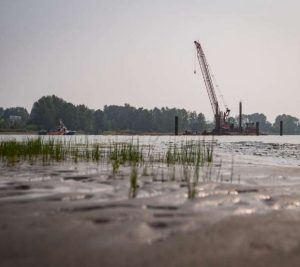
Fraser River salmon have a ‘gauntlet to get through’ as they return to spawn, biologists say
There seems to be a never-ending stream of obstacles facing the Fraser River salmon returning to spawn this year as well as the young preparing to make their own ocean-going journey. On top of warm water, habitat degradation and fishing pressure came the “near misses” of the last week. Last Friday, fire crews fought back a blaze on board a scrap metal barge in the Fraser in Surrey, B.C. Then on Tuesday, authorities sprang into action to contain a spill and remove a tug boat that had flipped and sank in the Fraser River near Deering Island in South Vancouver the night before. >click to read<13:51
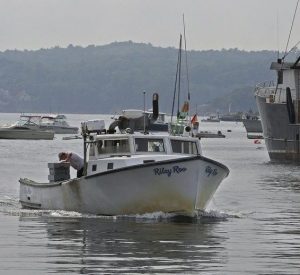
Push on to brand, market Massachusetts lobster
Building on the success of its Gloucester Fresh seafood branding campaign, the city of Gloucester plans to apply the same formula to help brand and market Massachusetts lobsters to lobster lovers the world over.,, Gloucester has dominated the lobster trade in Massachusetts and the industry’s high profile here has helped mitigate some of the misery foisted upon the community by the continuing groundfish crisis.,, It is the state’s No. 1 port in both number of active lobstermen — an average of 136 annually during the past five years — and amount of lobster annually landed. Gloucester has averaged 2.94 million pounds per year over the past five years, according to the state Division of Marine Fisheries. >click to read<12:02
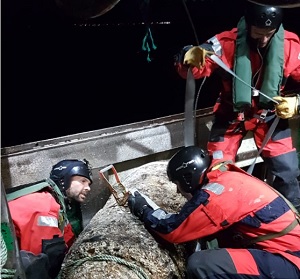
Big fish: French trawler nets 1-ton WWII bomb
French fishermen reeled in a big catch off the Normandy coast, but it turned out a bit more explosive than they anticipated. The trawler netted a WWII bomb with nearly a ton of explosives – and one movement could trigger a blast! The trawler Le Retour was fishing two nautical miles (4km) off the coast of Grandcamp-Maisy commune in the English Channel on Friday morning, when it picked up an unusual ‘fish’. The haul was a German WWII bomb which contained 860 kilos of explosives, the region’s maritime authorities said. The fishermen immediately alerted the officials about the dangerous discovery. A marine helicopter and five mine clearance divers were deployed within two hours. The Le Retour crew was promptly evacuated. >click to read<10:20
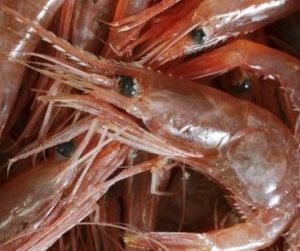
New England shrimp population still looks bad amid shutdown
A new analysis of New England’s shrimp population doesn’t bode well for the future of the long-shuttered fishery for the crustaceans. The Maine-based shrimp fishery has been shut down since 2013 because of concerns such as warming ocean temperatures and poor survival of young. Scientists working with the Atlantic States Marine Fisheries Commission are assessing the shrimp stock, and so far it looks like little has changed. Results of the stock assessment “look fairly similar to what we’ve seen in previous years,” said Megan Ware, a fishery management plan coordinator with the Atlantic States. >click to read<08:54

Coast Guard law enforcement assists injured woman, investigates fisherman for BUI off of Oregon Coast
A Coast Guard law enforcement team assisted an injured woman and are investigating the circumstances surrounding a commercial fisherman allegedly boating under the influence 12 miles off the Oregon Coast, Friday morning. A Coast Guard boat crew and law enforcement team aboard a 47-foot Motor Life Boat from Station Umpqua River removed the woman, reportedly suffering from a head laceration, bruising and swelling in the facial region, off the commercial fishing vessel Pescadero and transferred her to emergency medical services awaiting at Station Umpqua River, which transported her to Lower Umpqua River Hospital. >click to read<20:04
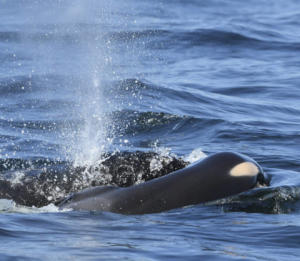
Center for Biological Diversity sues Trump administration to expand protected Southern Resident orca habitat along West Coast
The Tucson, Arizona-based Center for Biological Diversity said as it filed the lawsuit in U.S. District Court in Seattle.,,The lawsuit says the National Marine Fisheries Service has failed to act on the center’s 2014 petition to expand habitat protections to the orcas’ foraging and migration areas off the coasts of Washington, Oregon and California — even though the agency agreed in 2015 that such a move was necessary. The center says the protections would help reduce water pollution and restrict vessel traffic that can interfere with the animals.“ click to read<16:36
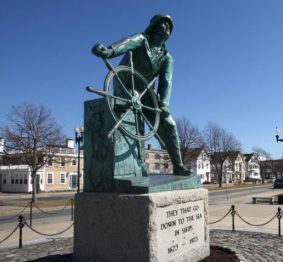
Annual Fishermen’s Memorial Service: Captain Cosmo hands, other lost fishermen to be remembered
Once again comes the Saturday to remember the men who went down to sea in boats and never came back again. Those who are too old to walk will sit, those who are too young to walk will ride on their parent’s shoulders. The rest will begin at the American Legion Hall in the late day August day to walk Middle Street to Stacy Boulevard in silent procession that will end at the edge of the Outer Harbor at Gloucester’s iconic statue of the man at the wheel.,,, Closure is not what the Annual Fishermen’s Memorial Service is about, but opening the hearts of all those present to celebrate the spirits of those who are no longer here. >click to read< What: Annual Fishermen’s Memorial Service. All are welcome to join the procession and carry oars and also flowers to cast into the sea in memory of lost fishermen. When: Saturday, Aug. 18, beginning at 5 p.m. with a procession.

FISH-NL asks federal Auditor General to investigate sentinel cod fisheries
“Money from the sale of cod caught in the sentinel or test fisheries goes in the pockets of the FFAW-Unifor even though the program is supposedly fully financed directly by Fisheries and Oceans,” says Ryan Cleary, President of FISH-NL. In a letter Thursday to Auditor General Michael Ferguson, Cleary said there doesn’t appear to be any formal audit or reporting process in place to calculate the amount of money raised by the sale of cod caught through the sentinel program, or to determine how the money is spent. Further, even though money from the sale of cod is used to subsidize the sentinel fisheries, the program falls outside Section 10 of the federal Fisheries Act, which seems to be a clear violation of the legislation. >click to read<12:45
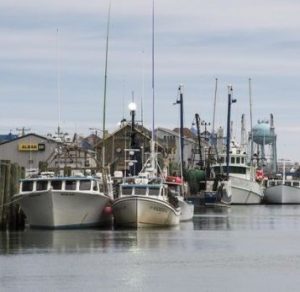
Ocean City Officials Strengthen Their Opposition to Proposed Wind Farms
Over a year ago, the Maryland Public Service Commission approved the leases for two wind farms off the coast of Ocean City, Maryland—a resort town and commercial fishing mecca. The commission approved 62 turbines at least 14 miles off the coast of Ocean City to be developed by U.S. Wind—a $1.4 billion project—and a 15-turbine, $720 million project by Skipjack Offshore Wind LLC to be situated north of the U.S. Wind project. ,, After a recent presentation from a noted expert on the impacts of wind farms on commercial fishing, the mayor and council decided to strengthen their opposition to the wind farms. >click to read<11:21
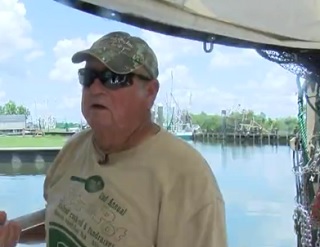
Low shrimp prices are hurting local fisherman who blame imports
Local shrimpers are seeing some of the lowest shrimp prices in history, and most blame imported shrimp. Jimmie Dupré has been shrimping for 61 years. He says he plans to retire soon because the industry is taking a turn for the worst. He says, “We can’t get good prices and they drop every time they have an open season, they drop the prices. They claim it’s on the imports. Now, who imports the shrimp? The processors import the shrimp. And they keep saying well it imports if it’s the import shrimp stop importing the damn thing.” There’s been talk of shrimpers going on strike if prices don’t increase but Dupré says that won’t fix the problem. >click to read<09:35
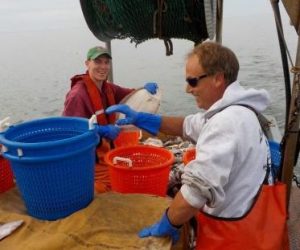
A rare victory for New England commercial fishermen
The New England fishing industry is enjoying a rare victory over federal regulators as the National Oceanic and Atmospheric Administration announced earlier this week that it would pick up the cost of at-sea monitoring of boats this year. What’s more, NOAA will reimburse fishermen for some of their out-of-pocket expenses from 2017. While that’s good news, there is still work to be done. There is no guarantee the new policy — less a promise of change than a one-time concession tucked in the federal budget — will continue past this year. And beyond the cost, the expensive, inefficient at-sea monitoring program, which spreads a limited number of monitors among a large number of vessels for an undetermined number of trips, must be able to provide accurate information regulators and fishermen can trust. >click to read<07:34
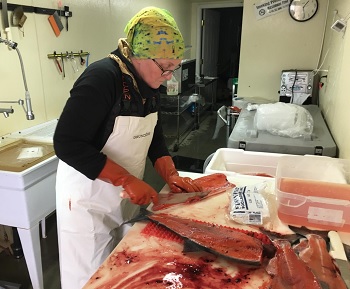
Small processors carve out a market in Bristol Bay
Standing in a shipping container that’s been converted into essentially a salmon butchery. Sandy Alvarez is filleting a sockeye. People regularly admire her technique but she said the secret behind it is practice. “Well you know people who comment they wish they could do that I usually laughingly tell them. ‘Try doing 1,500 fish for 10 years you probably can!’” Almost a decade ago Alvarez and her husband, a commercial fisherman, set up a little processing plant near their summer home in Naknek. Alvarez’s husband fishes for sockeye and drops off a bit of his catch to his wife who then processes it. Then he sells the rest of his salmon to a larger seafood company. That is pretty typical for small seafood processors in the region. >click to read<22:20
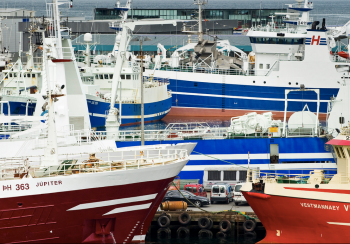
Iceland’s Fishing Minister: No Plans For “All-Seeing Eye” Within Government
A proposed drone surveillance plan for Iceland’s fishing fleet has provoked a strong response from the Confederation of Iceland Enterprise (SA), prompting Minister of Fisheries Kristján Þór Júlíusson to give some perspective on the idea. A draft of a government bill would deploy a series of drones to oversee Iceland’s fishing vessels, RÚV reports, for the purpose of reducing dumping and cheating on fishing weights. In response, SA managing director Halldór Benjamín Þorbergsson said in a radio interview yesterday that this drone system would mean that “Icelanders will have to prepare for a surveillance that has only been seen in novels and movies.” >click to read<






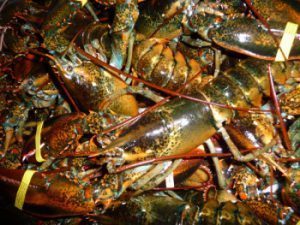

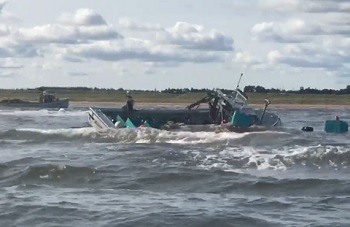




























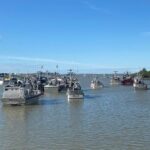
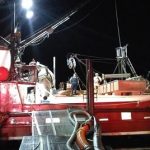
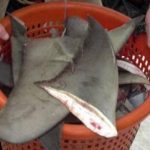

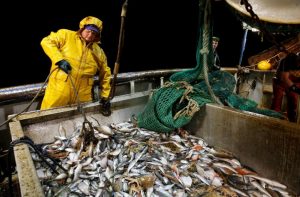
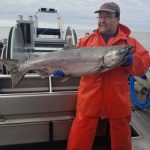
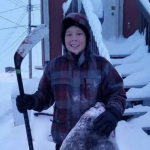
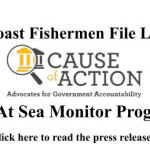
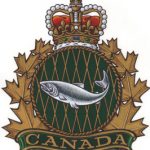



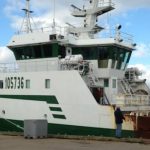



MAFMC/ASMFC Public Hearings on Summer Flounder Commercial Issues Amendment
The Mid-Atlantic Fishery Management Council and Atlantic States Marine Fisheries Commission are seeking public input on a draft amendment to address several potential changes to the management of the commercial summer flounder (fluke) fishery, as well as modifications to the fishery management plan (FMP) goals and objectives for summer flounder. Ten public hearings will be held between September 10 and September 27. Written comments will be accepted through October 12, 2018. >click to read<19:25
Share this post